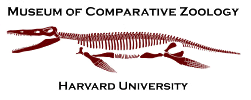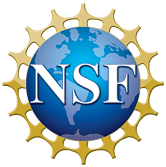Sternum (Breast Bone) of the Sooty Shearwater Puffinus griseus (MCZ 347048)
Rotate: left click on mouse
Zoom: right click on mouse (PC) or command and click (Mac)
Move: left and right click simultaneously (PC) or shift and click (Mac)
| Phylogenic Position | |
|---|---|
| Aves - Neognathae - Procellariiformes - Procellariidae - Puffinus - Puffinus griseus | |
| Species Description | |
|
|
|
| Specimen Information | |
| Species | Puffinus griseus (Sooty Shearwater) |
| Element | Sternum (Breast Bone) |
| Specimen Number | MCZ 347048 |
| Sex | |
| Location | |
| Geological Age | Recent |
| Technical Information | |
| Scanner | Roland Picza |
| Resolution | 100 µm |
| Number of Data Points | 474545 |
| Number of Data Polygons | 949019 |
| Date Scanned | June 22, 2008 |
| Scan Technician | Michael Krzyzak |
| Edited By | Michael Krzyzak |
| Photographs | |
|
View All 1 Images |
|
| Download Digital Model | Size |
| STL File Not Publicly Available | 47.5 MB |
| Other Puffinus griseus (Sooty Shearwater) Elements | |
| Specimen | Element |
| MCZ 344091 | Left Tarsometatarsus (Left Fused Element Consisting of Ankle and Middle Foot Bones) |
| Institution Data Use Policy | |
| http://www.mcz.harvard.edu/privacy/user.html | |




